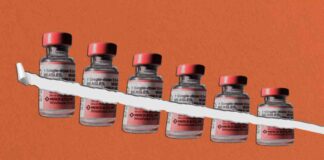The BIOSECURE Act, a piece of legislation targeting Chinese biotechnology companies, has been the center of attention in Washington early this year. However, the fate of this bill hangs in the balance as Congress faces the deadline to pass it in December.
If enacted, the BIOSECURE Act would impose restrictions on U.S. pharmaceutical and biotechnology companies engaging in business with specific Chinese companies such as WuXi AppTec and WuXi Biologics. This move is expected to raise costs for drug manufacturers, as the biopharma industry heavily relies on these Chinese companies for contract manufacturing and other essential services.
With strong bipartisan support, lawmakers are eager to demonstrate a firm stance on China through the implementation of the BIOSECURE Act. The bill could potentially be included in crucial legislation, such as the defense budget bill or a government funding bill, making it more likely to pass.
The biopharmaceutical industry is closely monitoring the developments surrounding the BIOSECURE Act, as it could have significant implications for their operations and financial obligations. The decision to restrict business with certain Chinese companies reflects broader concerns about national security and intellectual property protection.
Given the current geopolitical climate and concerns over China’s influence in various sectors, the BIOSECURE Act represents a proactive measure by Congress to safeguard U.S. interests and bolster domestic biotechnology capabilities. As the deadline for passing the bill approaches, industry stakeholders are closely following the legislative process and its potential impact on their operations.
In conclusion, the BIOSECURE Act underscores the growing importance of biosecurity measures and the need to address potential risks associated with foreign partnerships in the biotechnology sector. By prioritizing national security and economic interests, Congress aims to strengthen the resilience of the U.S. biopharma industry and protect its competitive edge in the global market.


















